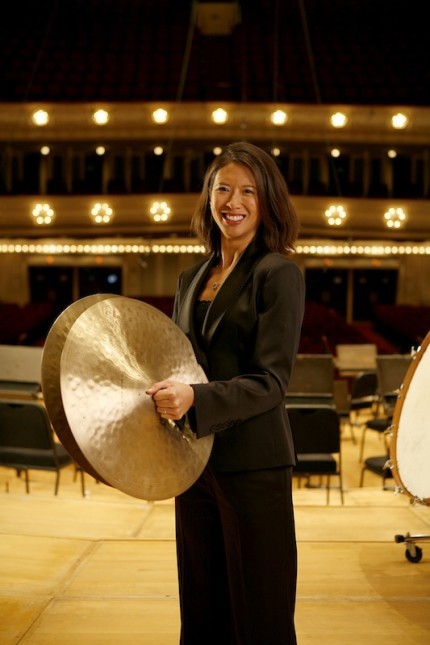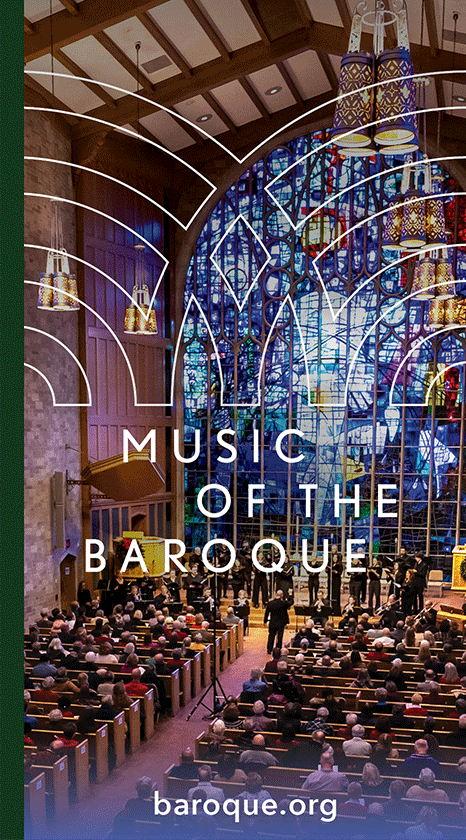With questions ahead, Illinois Philharmonic closes season in eclectic fashion

The Illinois Philharmonic Orchestra opened its final concert of the season Saturday night with John Cage’s 4:33. When the avant-garde composer’s infamous work of nothingness was programmed, it was likely unforeseen how symbolic the work might be.
First, it’s the last installment in music director David Danzmayr’s project of performing an American work on every program, something the conductor has done at each concert since taking the IPO reins in 2012. Danzmayr has instead chosen to feature a contemporary work from a variety of international composers on each program starting in the fall.
More unsettling is the news that 2015-16 will be Danzmayr’s final season as IPO music director. Clearly, the immensely gifted Austrian is on the fast track in what promises to be a major career and no one expected him to stay in south suburban Frankfort for long. Still, his departure after four seasons is a major blow to an ensemble that appeared to be on the rise, and leaves a formidable task for IPO management to find a worthy successor.
The performance of Mahler’s Symphony No. 5, which concluded the Illinois Philharmonic’s season Saturday, was emblematic of IPO performances under its charismatic conductor. Danzmayr showed complete sympathy with Mahler’s idiom, pacing the 75-minute canvas with great skill. His sweeping, intense podium direction elicited a roiling, dramatic performance that pushed the orchestra to the limits of their capabilities and beyond.
The problem, as in the past, was the lack of consistent polish and clean execution. Worthy brass and wind solos were followed by technical lapses and jarring misfires, along with patches of errant intonation and fitfully slack ensemble. The fact that Danzmayr was still able to summon up a convincing and credible performance of this epic and difficult work is a testament to the core of solid players in the orchestra as well as his dynamic podium leadership. But, it’s clear that the IPO is never going to get to the next level unless management—and Danzmayr’s successor—make the hard personnel upgrades necessary to accomplish that.
The highlight of this Mahler 5 was the Adagietto. Danzmayr drew a notably fresh and ardent rendering, plumbing an affecting vein of melancholy nostalgia with refined playing from the IPO violins. Too bad a woman’s unmuffled hacking cough spoiled some of the quietest moments.
Anders Koppel’s Marimba Concerto No. 1 was the evening’s centerpiece, performed by Cynthia Yeh, the Chicago Symphony Orchestra’s principal percussionist.
Koppel began playing in a rock band as pianist and clarinetist and has become one of Denmark’s most popular and prolific classical composers. His vast oeuvre includes over a hundred works, including film scores, ballets and thirty concertos.
Cast in three short movements, the Marimba Concerto No. 1—Koppel has written four to date—is a light, genre-traversing esprit, though a demanding one for the soloist. The outer movements have a motoric, jazz-inflected American contour to their themes, and the Adagio evokes a dreamy nocturnal languor.
Yeh provided the finest possible advocacy for Koppel’s concerto, which offered a showcase for her immaculate rhythmic acuity and superb musicality. The soloist brought a wide dynamic palette to the opening Allegro and a wonderfully fluent, aria-like delicacy to the Adagio’s theme, as if not playing a percussion instrument with sticks at all. With alert rhythmic coordination with Danzmayr and the orchestra, Yeh’s energy and playful touch in the finale rounded off a delightful performance.
Many view Cage’s 4:33 as a gimmick but, in his extended introduction, Danzmayr said he believes the silent work to be “one of the most important works of the 20th century.” Saturday’s performance–conveniently scored for the same forces as the ensuing Koppel minus the soloist—was likely more silent than even Cage intended. The suburban audience maintained a respectful, church-like quiet, apart from a light cough, candy wrapper and the musicians shifting weight between movements.
The Illinois Philharmonic Orchestra opens its 38th season October 17 and 18 with Wagner’s Rienzi Overture, Brahms’ Symphony No. 4 and Joshua Roman performing the world premiere of his Cello Concerto. ipomusic.org
Posted in Performances



Posted Jun 01, 2015 at 3:41 am by Roland Buck
With Danzmayr wasting the slot for the American work at each concert with total nonsense like Cage’s 4:33, one should not be surprised that the management has decided to end this practice. I would conjecture that if he had used the slot to program beautiful works by American composers, like Copland’s Appalachian Spring, Barber’s Adagio for Strings, or a suite from West Side Story they might have reached a different decision.
The audience was much too polite in its response to this insult to its intelligence. Massive unmuffled coughs would have been a highly appropriate response.
Posted Jun 01, 2015 at 9:26 pm by Richard Moutvic
The IPO concert of May 30 was outstanding. Maestro Danzmayr conducted the orchestra through the Mahler 5 with his usual brilliance, leading the musicians from the boldest to the softest passages with great passion. Ms. Yeh was a delight as soloist on the marimba playing Koppel’s concerto. The orchestra has responded beautifully during the entire season. We will miss Maestro Danzmayr, and we look forward to filling his capable shoes with another talented conductor.